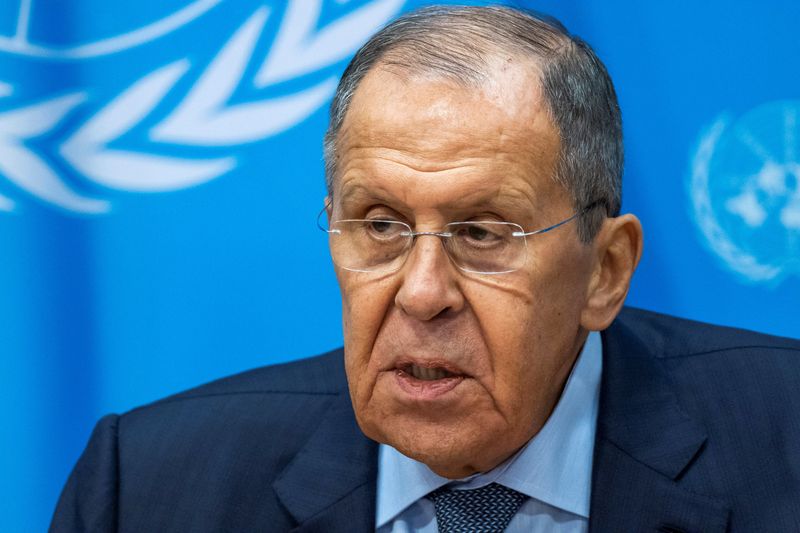Russia’s Lavrov says stands alongside China on Taiwan, other issues
2024.10.02 21:42
(Reuters) – Russia stands alongside China on Asian issues, including the criticism of the U.S. drive to extend its influence and “deliberate attempts” to inflame the situation around Taiwan, its foreign minister said in an interview published on Thursday.
Sergei Lavrov, in an essay published in the government newspaper Rossiiskaya Gazeta, also praised Beijing’s approach to the war in Ukraine and said both countries wanted to eliminate the problems that Moscow says lie behind the conflict.
Writing to mark the Russia’s 75th anniversary of diplomatic relations with China, Lavrov said Moscow and Beijing held close positions “in assessing the risks associated with the advance of the West in the Asia-Pacific region”.
“The United States and its satellites deliberately stir up the situation in the Strait of Taiwan,” Lavrov wrote.
“In violation of the ‘One China’ principle that they recognise, they are strengthening ties with the island’s administration. Russia’s position on the Taiwan issue has been unchanged support for China’s territorial integrity, expressed at different levels, including at the very top,” he said.
Lavrov was referring to a core Chinese government policy that states Taiwan is part of China.
Chinese leader Xi Jinping has repeatedly vowed to achieve reunification with the island, run by a separate government since nationalists fled there after Chinese communists took power in 1949.
This week, Xi said in a speech that Taiwan is an integral part of China’s territory, while pledging to “resolutely oppose any separatist activities seeking ‘Taiwan independence’”. He added that “complete national reunification (with Taiwan) is an irresistible trend,” the official Xinhua news agency reported.
U.S. President Joe Biden approved $567 million in defence support for Taiwan this week and Washington remains Taiwan’s most important international backer and arms supplier even in the absence of formal diplomatic ties. China has repeatedly demanded Washington stop selling weapons to Taipei.
In his remarks to Rossiiskaya Gazeta, Lavrov said the system of security in Europe and Euro-Atlantic affairs had been “fully discredited” by the United States and NATO. He called for a “new architecture for Eurasian security” based on the principle of “regional solutions for regional problems”.

Lavrov praised China’s “balanced and consistent” approach to the 2 1/2-year-old war in Ukraine and said its initiatives rightly called for the elimination of its root causes, including NATO’s eastward expansion and the creation of an “anti-Russian military bridgehead in Ukraine”.
China and Brazil have been promoting a peace plan centred on a conference to which both Ukraine and Russia would be invited. Ukrainian President Voldodymyr Zelenskiy rejects the proposal and has been presenting his own “victory plan” and Kyiv’s insistence that Ukraine’s 1991 post-Soviet borders be restored.








